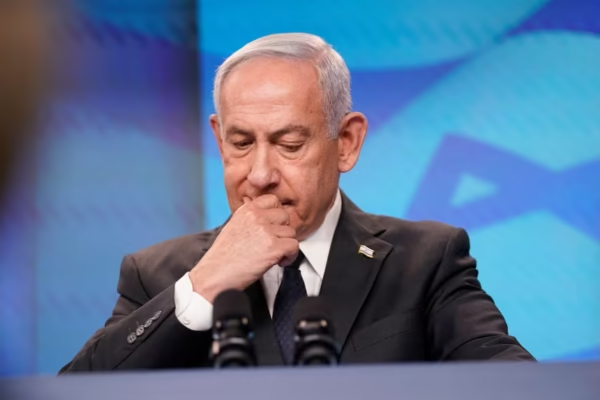
From Diplomacy to Sports, Israel Faces Growing Global Isolation Amid Gaza War
Israel is facing an unprecedented wave of diplomatic and cultural backlash as its war in Gaza intensifies, with consequences now spreading beyond international politics into trade, entertainment, and global sports. The mounting isolation comes in the wake of a series of controversial military actions, including a ground offensive in Gaza City and a strike against Hamas leaders on Qatari soil. Last week, an independent United Nations commission became the first to officially accuse Israel of committing genocide in Gaza — a charge echoed by several human rights organizations but categorically denied by the Israeli government. Diplomatic Fallout The consequences are reverberating through Israel’s international alliances. The European Union, Israel’s largest trading partner, has proposed partial trade sanctions, which would suspend parts of its free trade agreement with the country. Meanwhile, countries such as France, Spain, Italy, the UK, and the Netherlands have imposed partial or full arms embargoes against Israel. In August, Norway’s sovereign wealth fund — the world’s largest — announced a divestment from Israeli companies due to the worsening humanitarian crisis in Gaza. Even Israeli Prime Minister Benjamin Netanyahu has publicly acknowledged the isolation. Speaking earlier this month, he warned that Israel was entering a period of “a kind of isolation” that could last for years. While he later downplayed the comment, attributing it to the defense sector specifically, the message was clear: Israel may need to reorient its economy and defense industry to reduce dependence on foreign partners. Cultural and Sporting Boycotts Israel is also facing pushback in the cultural sphere. Broadcasters in Ireland, the Netherlands, and Spain have announced boycotts of the Eurovision Song Contest if Israel is allowed to participate in 2026. Irish broadcaster RTE said that participating would be “unconscionable” given the scale of civilian casualties in Gaza. In Belgium, a major music festival in Ghent cancelled a performance by the Munich Philharmonic over concerns about its Israeli conductor Lahav Shani. Organizers cited the lack of clarity on Shani’s stance toward “the genocidal regime in Tel Aviv.” In Hollywood, thousands of actors and filmmakers — including Emma Stone, Olivia Colman, and Andrew Garfield — have signed a pledge not to collaborate with Israeli cultural institutions, accusing them of complicity in “genocide and apartheid.” Sporting Sanctions and Protests The world of sports has not been spared. A major cycling event in Spain was disrupted by pro-Palestinian protests, leading to the cancellation of its final stage due to the participation of the Israel-Premier Tech team. Separately, Israeli players withdrew from a chess tournament in Spain after being told they could not compete under their national flag. Israeli officials are now scrambling to prevent suspension from European football tournaments, amid growing calls for Israel’s removal from competitions governed by UEFA. Culture and Sports Minister Miki Zohar confirmed that the government is working behind the scenes to “block the initiative to expel Israel from UEFA.” Meanwhile, several high-profile athletes, including Liverpool’s Mohamed Salah, have publicly condemned the war and expressed solidarity with the Palestinian people. A ‘South Africa Moment’? The international backlash has drawn comparisons to the boycott of apartheid South Africa, with growing pressure on governments and organizations to cut ties with Israel. Former Israeli ambassador to South Africa, Ilan Baruch, says the cultural and economic isolation now taking shape could carry real weight. “Eurovision and football are very, very popular,” Baruch told CNN. “If you connect the pressure on Israel’s policies with boycotts in culture and sports, it will make an impact — as it did with South Africa.” Baruch now leads a policy group advocating for recognition of a Palestinian state and a two-state solution. He argues that Israel’s current level of privilege in global trade and diplomacy is no longer sustainable while it “undermines Palestinian human rights and future.” UN Recognition and ICC Scrutiny At this year’s UN General Assembly, several major nations — including Canada, France, and the UK — formally recognized the State of Palestine, further isolating Israel on the diplomatic front. A UN genocide commission has also recommended that the International Criminal Court (ICC) include genocide in its ongoing investigation into the situation in Palestine. Israeli Prime Minister Netanyahu is already under an ICC arrest warrant, which has severely limited his international travel. His recent route to New York for the UNGA avoided French and Spanish airspace, countries that could potentially enforce the warrant. Despite the growing divide, the United States continues to support Israel diplomatically. U.S. Secretary of State Marco Rubio acknowledged criticism of Israel’s recent military actions but insisted that the U.S.–Israel alliance remains “strong.” Looking Ahead While some analysts suggest that this wave of global condemnation may subside after the war, others see it as a turning point. Robert Satloff, executive director of the Washington Institute for Near East Policy, warned that some of Israel’s most reliable international allies are “leaving the fold.” “Over time, there’s a clear pattern of once-strong supporters moving in the opposite direction,” Satloff said. As military operations in Gaza continue and global scrutiny deepens, Israel’s standing on the world stage is facing its most serious challenge in decades — one that could reshape its international relationships for years to come.

